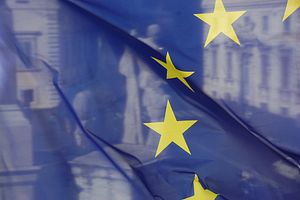Trans-Pacific View author Mercy Kuo regularly engages subject-matter experts, policy practitioners, and strategic thinkers across the globe for their diverse insights into the U.S. Asia policy. This conversation with Dr. Guntram Wolff – Director of Bruegel, who regularly testifies at the meeting of EU finance ministers as well as before members of European and national parliaments – is the 137th in “The Trans-Pacific View Insight Series.”
What would be the EU’s strategic positioning in a potential trade war between the U.S. and China?
Overall, the EU should aim to avoid falling into the trap that President Trump has opened: picking sides and undermining the multilateral trading system. Trump’s opening step was skillful. First, he justified the steel and aluminium tariffs as necessary for the security of the United States. This makes it difficult to win the case at the WTO, which allows in principle imposing tariffs on security grounds. But even more fundamentally, he granted an exemption to the EU on these tariffs.
The EU has taken note of the temporary exemptions that the U.S. has granted and would like them to be permanent. As such, that formal declaration by the top European leaders has already put a wedge between those countries that have been granted exemptions and those that have received even more tariffs. In particular, the EU has been treated differently from China at its own request and that will not have gone unnoticed in Beijing. South Korea has also received exemptions. The united front that could be upheld on the Paris climate agreement was not preserved on steel. Trump skillfully managed to divide the world with these small scale measures. The multilateral system is already compromised.
What is the EU’s leadership role in sustaining the future of the liberal, free-market international order?
The challenge of the United States to the global trading system well exceeds steel and aluminium tariffs. The list of possible products on which Trump is threatening measures toward China is actually long and wide-ranging and would affect some $50 billion of imports. Conversely, the list of possible counter measures by China is also substantial and would affect perhaps some $30 billion of imports.
The main point is that no country would be unaffected by such an escalation. China would naturally redirect some of its exports to the EU and also the U.S. would redirect some of its exports to China. This could have strong effects on global trade flows and production structures. It will come with a high cost to the global economy.
The EU should support China at the WTO – the U.S. methods are unacceptable. However, the EU should also support the U.S. when it comes to negotiating better market access in China, which is still too limited. Reciprocity is not given, and China’s economic model needs amendments if one wanted to open up for investment.
At what point should the U.S. and EU recognize China as a “market economy”?
China’s economy is not a market economy. The government sector is much more heavily involved in shaping the economy than in the EU or the U.S. That creates distortions that undermine the level playing field for companies in countries where such support is not granted. For example, the EU has a very strict regime limiting state aid – if a major Chinese company with major state supports enters the EU market, competition will be unfair.
In principle, China’s economic model should change if totally free trade and investment relations are to be achieved. Yet, it is unlikely that it will. There is therefore a significant possibility that the global trade model centered on the WTO will gradually fall apart. The question is whether another model could emerge in which China takes a stronger leadership role. One thing should be clear: trade and investment require rules, stability and a level-playing field. A win-win global trade model is better than a division of the world in different spheres of influence.
Explain how economic security and regional security in an EU context are intertwined.
The different countries of the EU are to different degrees able to defend themselves against modern threats. So far, EU countries have strongly relied on the security guarantee of the U.S. but gradually there is a shift in thinking. Yet, for many years to come, the EU will remain dependent on the United States for its security: be it possible military threats from Russia or even cybersecurity risks or terrorism.
What would be the policy impact of a U.S.-China trade war on transatlantic relations?
Paradoxically, it could result in an improvement of the transatlantic relations. The EU does not like Donald Trump nor his approach. Yet, when having to choose an alliance, we will tend to be closer to the U.S. than to China. One can see that Trump now tries to get back into TPP [the Trans-Pacific Partnership]. I would not exclude that there may eventually be talk of a TTIP [Transatlantic Trade and Investment Partnership] again. But the EU would also like to further improve its relations with China. Could the EU and China agree on a bilateral investment treaty that recognizes the concerns of both parties and establishes a strong rules-based system? There is much for the EU to talk about with its partners.































